
Early in October 2020, shortly after quarantine restrictions on interprovincial travel were lifted following the harrowing first wave of Covid-19 lockdowns, I drove north to the Kalahari. After months of hiding out at home, I felt an urgent need to reconnect with deep nature and the Kalahari is one of the planet’s ever-diminishing number of naturally quiet places. Natural quiet doesn’t mean total silence; rather, it’s the sounds of nature without any mechanical noise. Science has empirically verified that quiet places are a balm with the power to heal, but there’s a trick to crossing the divide between human and wild environments: nothing must impede direct access to nature’s soothing sights and euphonies.
My destination was Marrick Safaris, 10 kilometres south-west of Kimberley, the Northern Cape’s raffish provincial capital. In 1994 the Datnow family converted Marrick’s 3000 hectares from domestic farming to ecotourism and it’s where I go when I seek to immerse myself in wild country without being plagued by onerous rules and regulations. Though Marrick is not far from the iconic mining town’s bustle, the marks of civilization’s violent collision with earth’s ecosystems are surprisingly inconspicuous here and, unlike some once-wild places, it’s not overrun by hordes of tourists.
Esta historia es de la edición November/December 2021 de African Birdlife.
Comience su prueba gratuita de Magzter GOLD de 7 días para acceder a miles de historias premium seleccionadas y a más de 9,000 revistas y periódicos.
Ya eres suscriptor ? Conectar
Esta historia es de la edición November/December 2021 de African Birdlife.
Comience su prueba gratuita de Magzter GOLD de 7 días para acceder a miles de historias premium seleccionadas y a más de 9,000 revistas y periódicos.
Ya eres suscriptor? Conectar

EXPLORING NEW HORIZONS
Keith Barnes, co-author of the new Field Guide to Birds of Greater Southern Africa, chats about the long-neglected birding regions just north of the Kunene and Zambezi, getting back to watching birds and the vulture that changed his life.
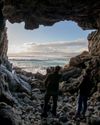
footloose IN FYNBOS
The Walker Bay Diversity Trail is a leisurely hike with a multitude of flowers, feathers and flavours along the way.
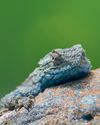
Living forwards
How photographing birds helps me face adversity
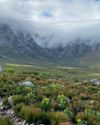
CAPE crusade
The Cape Bird Club/City of Cape Town Birding Big Year Challenge
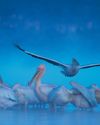
water & WINGS
WATER IS LIFE. As wildlife photographer Greg du Toit knows better than most.
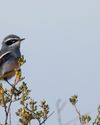
winter wanderer
as summer becomes a memory in the south, the skies are a little quieter as the migrants have returned to the warming north. But one bird endemic to the southern African region takes its own little winter journey.
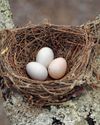
when perfect isn't enough
Egg signatures and forgeries in the cuckoo-drongo arms race

Southern SIGHTINGS
The late summer period naturally started quietening down after the midsummer excitement, but there were still some classy rarities on offer for birders all over the subregion. As always, none of the records included here have been adjudicated by any of the subregion's Rarities Committees.

flood impact on wetland birds
One of the features of a warming planet is increasingly erratic rainfall; years of drought followed by devastating floods. Fortunately, many waterbirds are pre-adapted to cope with such extremes, especially in southern Africa where they have evolved to exploit episodic rainfall events in semi-arid and arid regions. But how do waterbirds respond to floods in areas where rainfall - and access to water - is more predictable? Peter Ryan explores the consequences of recent floods on the birds of the Western Cape's Olifants River valley.
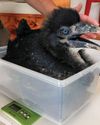
a star is born
It’s every producer’s dream to plan a wildlife television series and pick the right characters before filming.